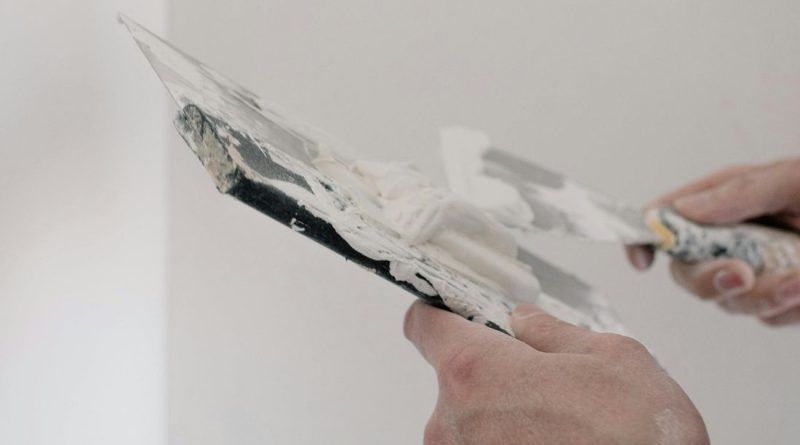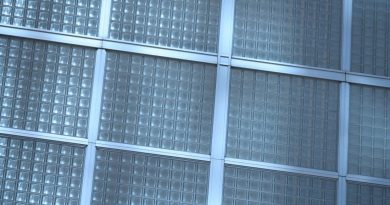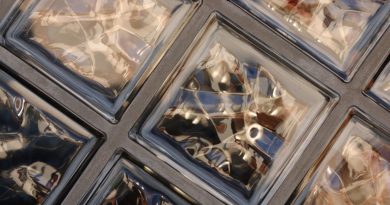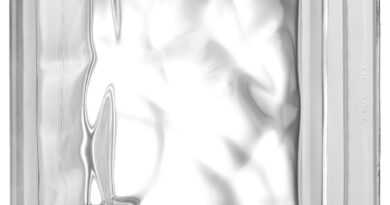Choosing the Right Glass Block Mortar Mix for Your Project
When it comes to ensuring the durability and aesthetic appeal of your glass block installations, selecting the right glass block mortar mix is crucial. As an experienced contractor with over 15 years in the field of masonry and glass block installations, I have seen firsthand how the right materials can significantly enhance both the performance and appearance of a project. This guide will provide essential information about glass block mortar mixes, including types, best practices, and common mistakes to avoid, while also addressing the question: What is the best type of glass block mortar mix to use?
Understanding Glass Block Mortar Mix
Glass block mortar mix is specifically designed for use with glass blocks, which are popular in residential and commercial settings. These blocks offer a unique combination of strength, insulation, and aesthetic qualities. Unlike traditional mortar, glass block mortar accommodates the unique properties of glass blocks.
Unique Features of Glass Block Mortar Near Me
Glass block mortar mix has a translucent quality that allows light to pass through while providing structural support. This feature is crucial for maintaining the integrity of glass block walls, often used in areas requiring natural light, such as bathrooms, kitchens, and basements.
Additionally, a glass block mortar near me has a higher bonding strength than regular mortars. This strength is vital for ensuring that glass blocks stay securely in place, especially in areas subject to temperature changes or moisture.
Importance of Quality
Choosing a high-quality glass block mortar mix is essential for both the immediate look of your installation and its long-term durability. Low-quality mortars can cause issues like cracking and discoloration.
Types of Glass Block Mortar Mix Near Me
Many types of glass block mortar mixes are available. Understanding these varieties helps you select the best option for your project.
Pre-Mixed Mortar
Pre-mixed glass block mortar mix near me is ready to use and comes in bags or tubs. This option is convenient for both DIYers and professionals, as it eliminates the need for measuring and mixing ingredients. Pre-mixed options often include additives that enhance adhesion and workability.
Advantages of Pre-Mixed Mortar
| Pros | Cons |
| Convenience: No mixing is needed; just open the bag and apply. | Cost: Generally pricier than mixing your own. |
| Consistency: Each batch is uniform, reducing inconsistencies. | Limited Customization: You cannot adjust the mix for specific needs. |
| Time-Saving: Ideal for quick projects or repairs. |
Custom Blends
Custom blends allow you to mix your own mortar using ingredients like sand, cement, and additives. This option is often preferred by professionals for its flexibility.
Advantages of Custom Blends
| Pros | Cons |
| Customization: Tailor the mix to your project requirements. | Complexity: Requires knowledge and experience in mixing mortar. |
| Cost-Efficiency: Buying materials in bulk can lower costs over time. | Time-Consuming: More preparation time is needed for mixing. |
| Control Over Ingredients: Choose high-quality materials for optimal performance. |
Key Factors to Consider When Selecting Your Mortar Mix
When choosing a glass block mortar mix, consider these essential factors:
Project Requirements
Evaluate the specific needs of your project, including the size and weight of the glass blocks, their intended use, and local climate conditions. For example, a bathroom installation may have different requirements than a decorative wall in a living room.
Environmental Conditions
Climate significantly influences mortar selection. In areas with high humidity or extreme temperature changes, look for a mortar mix that offers moisture resistance and flexibility.
Aesthetic Considerations
The appearance of the mortar joint matters too. Some mortars come in various colors, allowing you to match or complement the glass blocks for a seamless look.
Comparing Pre-Mixed and Custom Blends for Glass Blocks
Weigh the pros and cons of pre-mixed versus custom blends based on your needs.
When to Choose Pre-Mixed Mortar
- For DIY Projects: If you’re new to mixing mortar, pre-mixed options are user-friendly.
- For Quick Repairs: Pre-mixed mortar saves time for small repairs or touch-ups.
When to Opt for Custom Blends
- For Large Projects: Mixing your own mortar can be more cost-effective for large installations.
- For Specialized Needs: Custom blends allow adjustments based on specific environmental conditions or project requirements.
Best Practices for Mixing and Applying Your Chosen Mortar
Follow these best practices for mixing and applying your glass block mortar mix to achieve the best results.
Mixing Mortar: Step-by-Step Guide
- Gather Materials: Collect all necessary components, including sand, cement, and any additives.
- Measure Ingredients: Use accurate measurements for each component to ensure consistency.
- Combine Dry Ingredients: Thoroughly mix sand and cement before adding water.
- Add Water Gradually: Slowly add water while mixing to achieve the desired consistency.
- Mix Until Smooth: Continue mixing until the mortar has a uniform texture with no lumps.
Application Tips
- Use the Right Tools: A notched trowel is ideal for applying mortar evenly.
- Work in Sections: Apply mortar in manageable sections to maintain workability.
- Check Alignment: Regularly verify that the glass blocks are straight and level.
Common Mistakes to Avoid with Glass Block Mortar Mixes
Even experienced professionals can make mistakes. Here are some common pitfalls to avoid:
Using the Wrong Mortar Type
Selecting the incorrect type of mortar can lead to poor adhesion and structural issues. Always choose a mix designed specifically for glass blocks.
Over-Watering the Mix
Adding too much water weakens the mortar, leading to cracks and failures. Stick to the recommended water-to-mortar ratio for the best performance.
Ignoring Curing Time
Proper curing is vital for mortar strength. Follow the manufacturer’s instructions for curing times and conditions.
How Environmental Conditions Affect Your Choice of Mortar Mix
Environmental factors can greatly impact your glass block mortar’s performance. Here’s how to adjust your choice based on conditions:
Humidity and Moisture
In humid areas, choose a mortar mix with added moisture resistance. This helps prevent mold growth and ensures a strong bond.
Temperature Variations
In regions with extreme temperature changes, pick a flexible mortar that can expand and contract without cracking.
Tips for Achieving a Seamless Finish with Glass Blocks
Achieving a seamless finish requires careful application.
Ensure Proper Joint Spacing
Maintain consistent joint spacing between glass blocks for a uniform look. Use spacers if necessary.
Use a Grout Bag for Joints
For a clean finish, use a grout bag to apply mortar into the joints, minimizing mess and ensuring precision.
Clean Up Excess Mortar
After applying, promptly clean any excess from the glass surfaces to maintain clarity and prevent staining.
| Factor | Pre-Mixed Mortar | Custom Blends |
| Convenience | Ready to use, no mixing required | Requires mixing ingredients |
| Cost | Generally more expensive | Potentially more cost-effective for large quantities |
| Consistency | Uniform texture in every batch | Variability based on mixing skills and ratios |
| Customization | Limited options for adjustments | Fully customizable based on project needs |
| Learning Curve | Easy for beginners | Requires experience and knowledge |
| Time Efficiency | Quick application for small projects | More time-consuming for mixing |
| Adhesion and Flexibility | Designed for glass blocks, good adhesion | Can be tailored for specific environmental conditions |
| Maintenance | Generally requires less post-application care | May need sealing depending on composition |
FAQs About Glass Block Mortar Mix
What is the best type of glass block mortar mix to use?
The best type depends on your project needs. Pre-mixed mortars are ideal for ease of use, while custom blends offer flexibility for larger projects.
Can I use regular mortar for glass blocks?
No, regular mortar lacks the necessary properties for proper adhesion and support with glass blocks.
How long does glass block mortar take to cure?
Curing times vary, but most mortars need at least 24 to 48 hours before exposure to moisture.
Where can I find glass block mortar near me?
You can find glass block mortar at local hardware stores, home improvement retailers, or specialty masonry supply stores. Use the search term “glass block mortar near me” to locate suppliers in your area.
Is it necessary to seal the mortar after application?
Sealing the mortar can enhance durability and protect against moisture, but it isn’t always necessary, depending on the specific product used.
By keeping these insights in mind, you can confidently select the right glass block mortar mix for your project, ensuring long-lasting beauty and structural integrity. Whether you’re searching for glass block mortar near me or exploring options for glass block mortar mix near me, this guide will help you navigate your choices effectively and achieve the results you desire.



